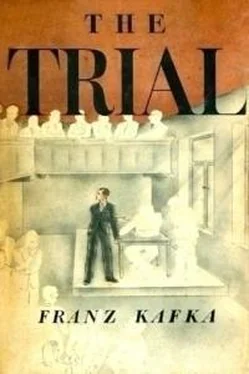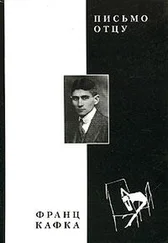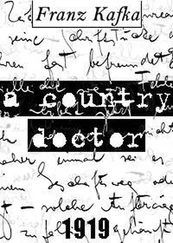Франц Кафка - The Trial
Здесь есть возможность читать онлайн «Франц Кафка - The Trial» — ознакомительный отрывок электронной книги совершенно бесплатно, а после прочтения отрывка купить полную версию. В некоторых случаях можно слушать аудио, скачать через торрент в формате fb2 и присутствует краткое содержание. Год выпуска: 2014, Издательство: epubBooks Classics, Жанр: Классическая проза, на английском языке. Описание произведения, (предисловие) а так же отзывы посетителей доступны на портале библиотеки ЛибКат.
- Название:The Trial
- Автор:
- Издательство:epubBooks Classics
- Жанр:
- Год:2014
- ISBN:нет данных
- Рейтинг книги:3 / 5. Голосов: 1
-
Избранное:Добавить в избранное
- Отзывы:
-
Ваша оценка:
- 60
- 1
- 2
- 3
- 4
- 5
The Trial: краткое содержание, описание и аннотация
Предлагаем к чтению аннотацию, описание, краткое содержание или предисловие (зависит от того, что написал сам автор книги «The Trial»). Если вы не нашли необходимую информацию о книге — напишите в комментариях, мы постараемся отыскать её.
The Trial — читать онлайн ознакомительный отрывок
Ниже представлен текст книги, разбитый по страницам. Система сохранения места последней прочитанной страницы, позволяет с удобством читать онлайн бесплатно книгу «The Trial», без необходимости каждый раз заново искать на чём Вы остановились. Поставьте закладку, и сможете в любой момент перейти на страницу, на которой закончили чтение.
Интервал:
Закладка:
K. watched her as she went; the decision had finally been made that the lawyer was to be dismissed, it was probably better that he had not been able to discuss the matter any more with Leni beforehand; she hardly understood the complexity of the matter, she would certainly have advised him against it and perhaps would even have prevented him from dismissing the lawyer this time, he would have remained in doubt and unease and eventually have carried out his decision after a while anyway as this decision was something he could not avoid. The sooner it was carried out the more harm would be avoided. And moreover, perhaps the businessman had something to say on the matter.
K. turned round, the businessman hardly noticed it as he was about to stand up. "Stay where you are," said K. and pulled up a chair beside him. "Have you been a client of the lawyer's for a long time?" asked K. "Yes," said the businessman, "a very long time." "How many years has he been representing you so far, then?" asked K. "I don't know how you mean," said the businessman, "he's been my business lawyer – I buy and sell cereals – he's been my business lawyer since I took the business over, and that's about twenty years now, but perhaps you mean my own trial and he's been representing me in that since it started, and that's been more than five years. Yes, well over five years," he then added, pulling out an old briefcase, "I've got everything written down; I can tell you the exact dates if you like. It's so hard to remember everything. Probably, my trial's been going on much longer than that, it started soon after the death of my wife, and that's been more than five and a half years now." K. moved in closer to him. "So the lawyer takes on ordinary legal business, does he?" he asked. This combination of criminal and commercial business seemed surprisingly reassuring for K. "Oh yes," said the businessman, and then he whispered, "They even say he's more efficient in jurisprudence than he is in other matters." But then he seemed to regret saying this, and he laid a hand on K.'s shoulder and said, "Please don't betray me to him, will you." K. patted his thigh to reassure him and said, "No, I don't betray people." "He can be so vindictive, you see," said the businessman. "I'm sure he won't do anything against such a faithful client as you," said K. "Oh, he might do," said the businessman, "when he gets cross it doesn't matter who it is, and anyway, I'm not really faithful to him." "How's that then?" asked K. "I'm not sure I should tell you about it," said the businessman hesitantly. "I think it'll be alright," said K. "Well then," said the businessman, "I'll tell you about some of it, but you'll have to tell me a secret too, then we can support each other with the lawyer." "You are very careful," said K., "but I'll tell you a secret that will set your mind completely at ease. Now tell me, in what way have you been unfaithful to the lawyer?" "I've … " said the businessman hesitantly, and in a tone as if he were confessing something dishonourable, "I've taken on other lawyers besides him." "That's not so serious," said K., a little disappointed. "It is, here," said the businessman, who had had some difficulty breathing since making his confession but who now, after hearing K.'s comment, began to feel more trust for him. "That's not allowed. And it's allowed least of all to take on petty lawyers when you've already got a proper one. And that's just what I have done, besides him I've got five petty lawyers." "Five!" exclaimed K., astonished at this number, "Five lawyers besides this one?" The businessman nodded. "I'm even negotiating with a sixth one." "But why do you need so many lawyers?" asked K. "I need all of them," said the businessman. "Would you mind explaining that to me?" asked K. "I'd be glad to," said the businessman. "Most of all, I don't want to lose my case, well that's obvious. So that means I mustn't neglect anything that might be of use to me; even if there's very little hope of a particular thing being of any use I can't just throw it away. So everything I have I've put to use in my case. I've taken all the money out of my business, for example, the offices for my business used to occupy nearly a whole floor, but now all I need is a little room at the back where I work with one apprentice. It wasn't just using up the money that caused the difficulty, of course, it was much more to do with me not working at the business as much as I used to. If you want to do something about your trial you don't have much time for anything else." "So you're also working at the court yourself?" asked K. "That's just what I want to learn more about." "I can't tell you very much about that," said the businessman, "at first I tried to do that too but I soon had to give it up again. It wears you out too much, and it's really not much use. And it turned out to be quite impossible to work there yourself and to negotiate, at least for me it was. It's a heavy strain there just sitting and waiting. You know yourself what the air is like in those offices." "How do you know I've been there, then?" asked K. "I was in the waiting room myself when you went through." "What a coincidence that is!" exclaimed K., totally engrossed and forgetting how ridiculous the businessman had seemed to him earlier. "So you saw me! You were in the waiting room when I went through. Yes, I did go through it one time." "It isn't such a big coincidence," said the businessman, "I'm there nearly every day." "I expect I'll have to go there quite often myself now," said K., "although I can hardly expect to be shown the same respect as I was then. They all stood up for me. They must have thought I was a judge." "No," said the businessman, "we were greeting the servant of the court. We knew you were a defendant. That sort of news spreads very quickly." "So you already knew about that," said K., "the way I behaved must have seemed very arrogant to you. Did you criticise me for it afterwards?" "No," said the businessman, "quite the opposite. That was just stupidity." "What do you mean, 'stupidity'?" asked K. "Why are you asking about it?" said the businessman in some irritation. "You still don't seem to know the people there and you might take it wrong. Don't forget in proceedings like this there are always lots of different things coming up to talk about, things that you just can't understand with reason alone, you just get too tired and distracted for most things and so, instead, people rely on superstition. I'm talking about the others, but I'm no better myself. One of these superstitions, for example, is that you can learn a lot about the outcome of a defendant's case by looking at his face, especially the shape of his lips. There are lots who believe that, and they said they could see from the shape of your lips that you'd definitely be found guilty very soon. I repeat that all this is just a ridiculous superstition, and in most cases it's completely disproved by the facts, but when you live in that society it's hard to hold yourself back from beliefs like that. Just think how much effect that superstition can have. You spoke to one of them there, didn't you? He was hardly able to give you an answer. There are lots of things there that can make you confused, of course, but one of them, for him, was the appearance of your lips. He told us all later he thought he could see something in your lips that meant he'd be convicted himself." "On my lips?" asked K., pulling out a pocket mirror and examining himself. "I can see nothing special about my lips. Can you?" "Nor can I," said the businessman, "nothing at all." "These people are so superstitious!" exclaimed K. "Isn't that what I just told you?" asked the businessman. "Do you then have that much contact with each other, exchanging each other's opinions?" said K. "I've kept myself completely apart so far." "They don't normally have much contact with each other," said the businessman, "that would be impossible, there are so many of them. And they don't have much in common either. If a group of them ever thinks they have found something in common it soon turns out they were mistaken. There's nothing you can do as a group where the court's concerned. Each case is examined separately, the court is very painstaking. So there's nothing to be achieved by forming into a group, only sometimes an individual will achieve something in secret; and it's only when that's been done the others learn about it; nobody knows how it was done. So there's no sense of togetherness, you meet people now and then in the waiting rooms, but we don't talk much there. The superstitious beliefs were established a long time ago and they spread all by themselves." "I saw those gentlemen in the waiting room," said K., "it seemed so pointless for them to be waiting in that way." "Waiting is not pointless," said the businessman, "it's only pointless if you try and interfere yourself. I told you just now I've got five lawyers besides this one. You might think – I thought it myself at first – you might think I could leave the whole thing entirely up to them now. That would be entirely wrong. I can leave it up to them less than when I had just the one. Maybe you don't understand that, do you?" "No," said K., and to slow the businessman down, who had been speaking too fast, he laid his hand on the businessman's to reassure him, "but I'd like just to ask you to speak a little more slowly, these are many very important things for me, and I can't follow exactly what you're saying." "You're quite right to remind me of that," said the businessman, "you're new to all this, a junior. Your trial is six months old, isn't it? Yes, I've heard about it. Such a new case! But I've already thought all these things through countless times, to me they're the most obvious things in the world." "You must be glad your trial has already progressed so far, are you?" asked K., he did not wish to ask directly how the businessman's affairs stood, but received no clear answer anyway. "Yes, I've been working at my trial for five years now," said the businessman as his head sank, "that's no small achievement." Then he was silent for a while. K. listened to hear whether Leni was on her way back. On the one hand he did not want her to come back too soon as he still had many questions to ask and did not want her to find him in this intimate discussion with the businessman, but on the other hand it irritated him that she stayed so long with the lawyer when K. was there, much longer than she needed to give him his soup. "I still remember it exactly," the businessman began again, and K. immediately gave him his full attention, "when my case was as old as yours is now. I only had this one lawyer at that time but I wasn't very satisfied with him." Now I'll find out everything, thought K., nodding vigorously as if he could thereby encourage the businessman to say everything worth knowing. "My case," the businessman continued, "didn't move on at all, there were some hearings that took place and I went to every one of them, collected materials, handed all my business books to the court – which I later found was entirely unnecessary – I ran back and forth to the lawyer, and he submitted various documents to the court too … " "Various documents?" asked K. "Yes, that's right," said the businessman. "That's very important for me," said K., "in my case he's still working on the first set of documents. He still hasn't done anything. I see now that he's been neglecting me quite disgracefully." "There can be lots of good reasons why the first documents still aren't ready," said the businessman, "and anyway, it turned out later on that the ones he submitted for me were entirely worthless. I even read one of them myself, one of the officials at the court was very helpful. It was very learned, but it didn't actually say anything. Most of all, there was lots of Latin, which I can't understand, then pages and pages of general appeals to the court, then lots of flattery for particular officials, they weren't named, these officials, but anyone familiar with the court must have been able to guess who they were, then there was self–praise by the lawyer where he humiliated himself to the court in a way that was downright dog–like, and then endless investigations of cases from the past which were supposed to be similar to mine. Although, as far as I was able to follow them, these investigations had been carried out very carefully. Now, I don't mean to criticise the lawyer's work with all of this, and the document I read was only one of many, but even so, and this is something I will say, at that time I couldn't see any progress in my trial at all." "And what sort of progress had you been hoping for?" asked K. "That's a very sensible question," said the businessman with a smile, "it's only very rare that you see any progress in these proceedings at all. But I didn't know that then. I'm a businessman, much more in those days than now, I wanted to see some tangible progress, it should have all been moving to some conclusion or at least should have been moving on in some way according to the rules. Instead of which there were just more hearings, and most of them went through the same things anyway; I had all the answers off pat like in a church service; there were messengers from the court coming to me at work several times a week, or they came to me at home or anywhere else they could find me; and that was very disturbing of course (but at least now things are better in that respect, it's much less disturbing when they contact you by telephone), and rumours about my trial even started to spread among some of the people I do business with, and especially my relations, so I was being made to suffer in many different ways but there was still not the slightest sign that even the first hearing would take place soon. So I went to the lawyer and complained about it. He explained it all to me at length, but refused to do anything I asked for, no–one has any influence on the way the trial proceeds, he said, to try and insist on it in any of the documents submitted – like I was asking – was simply unheard of and would do harm to both him and me. I thought to myself: What this lawyer can't or won't do another lawyer will. So I looked round for other lawyers. And before you say anything: none of them asked for a definite date for the main trial and none of them got one, and anyway, apart from one exception which I'll talk about in a minute, it really is impossible, that's one thing this lawyer didn't mislead me about; but besides, I had no reason to regret turning to other lawyers. Perhaps you've already heard how Dr. Huld talks about the petty lawyers, he probably made them sound very contemptible to you, and he's right, they are contemptible. But when he talks about them and compares them with himself and his colleagues there's a small error running through what he says, and, just for your interest, I'll tell you about it. When he talks about the lawyers he mixes with he sets them apart by calling them the 'great lawyers'. That's wrong, anyone can call himself 'great' if he wants to, of course, but in this case only the usage of the court can make that distinction. You see, the court says that besides the petty lawyers there are also minor lawyers and great lawyers. This one and his colleagues are only minor lawyers, and the difference in rank between them and the great lawyers, who I've only ever heard about and never seen, is incomparably greater than between the minor lawyers and the despised petty lawyers." "The great lawyers?" asked K. "Who are they then? How do you contact them?" "You've never heard about them, then?" said the businessman. "There's hardly anyone who's been accused who doesn't spend a lot of time dreaming about the great lawyers once he's heard about them. It's best if you don't let yourself be misled in that way. I don't know who the great lawyers are, and there's probably no way of contacting them. I don't know of any case I can talk about with certainty where they've taken any part. They do defend a lot of people, but you can't get hold of them by your own efforts, they only defend those who they want to defend. And I don't suppose they ever take on cases that haven't already got past the lower courts. Anyway, it's best not to think about them, as if you do it makes the discussions with the other lawyers, all their advice and all that they do manage to achieve, seem so unpleasant and useless, I had that experience myself, just wanted to throw everything away and lay at home in bed and hear nothing more about it. But that, of course, would be the stupidest thing you could do, and you wouldn't be left in peace in bed for very long either." "So you weren't thinking about the great lawyers at that time?" asked K. "Not for very long," said the businessman, and smiled again, "you can't forget about them entirely, I'm afraid, especially in the night when these thoughts come so easily. But I wanted immediate results in those days, so I went to the petty lawyers."
Читать дальшеИнтервал:
Закладка:
Похожие книги на «The Trial»
Представляем Вашему вниманию похожие книги на «The Trial» списком для выбора. Мы отобрали схожую по названию и смыслу литературу в надежде предоставить читателям больше вариантов отыскать новые, интересные, ещё непрочитанные произведения.
Обсуждение, отзывы о книге «The Trial» и просто собственные мнения читателей. Оставьте ваши комментарии, напишите, что Вы думаете о произведении, его смысле или главных героях. Укажите что конкретно понравилось, а что нет, и почему Вы так считаете.












